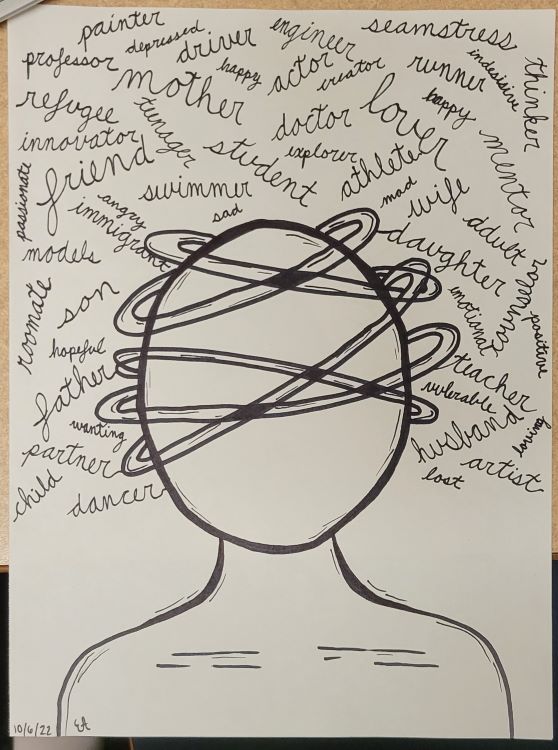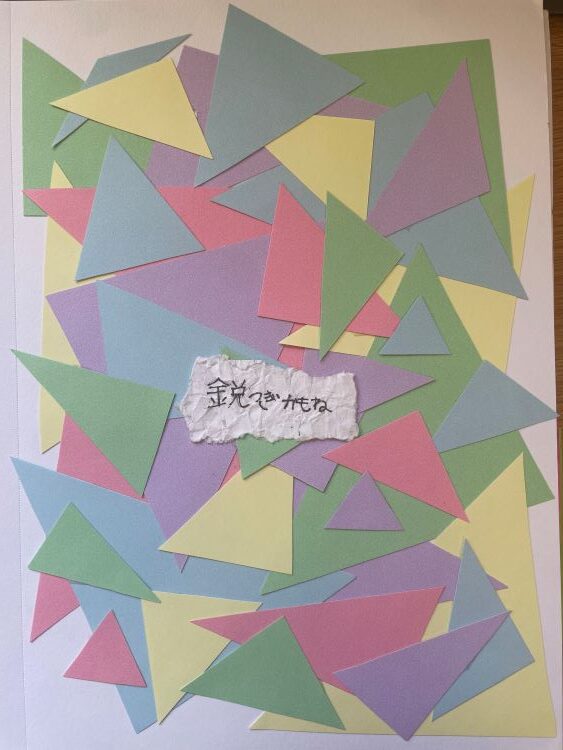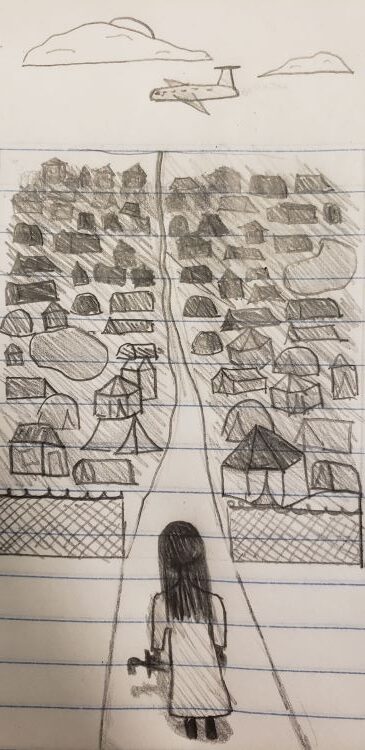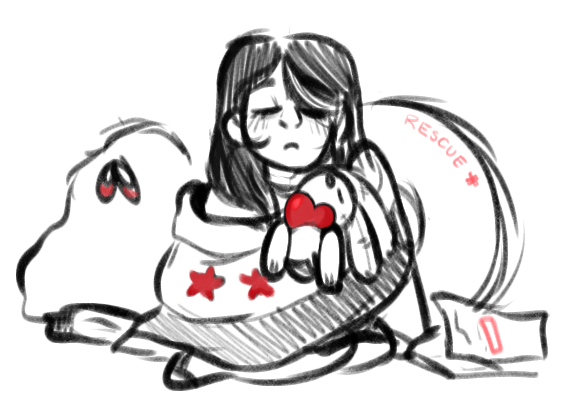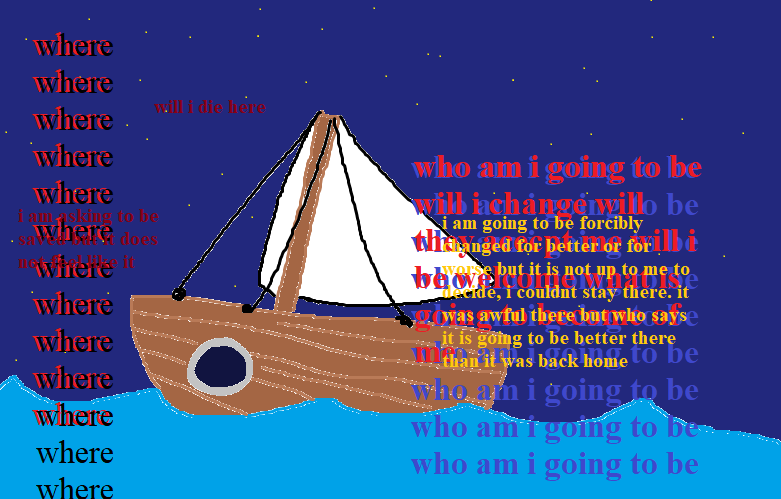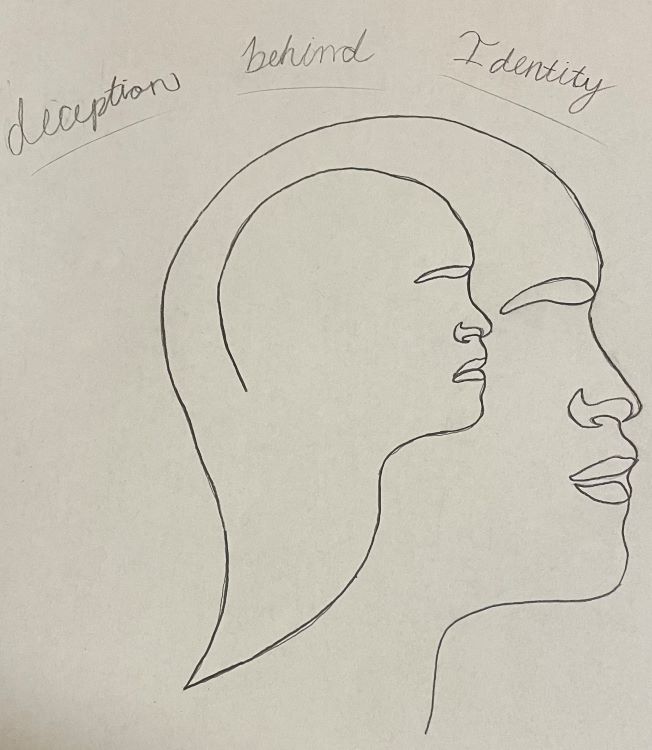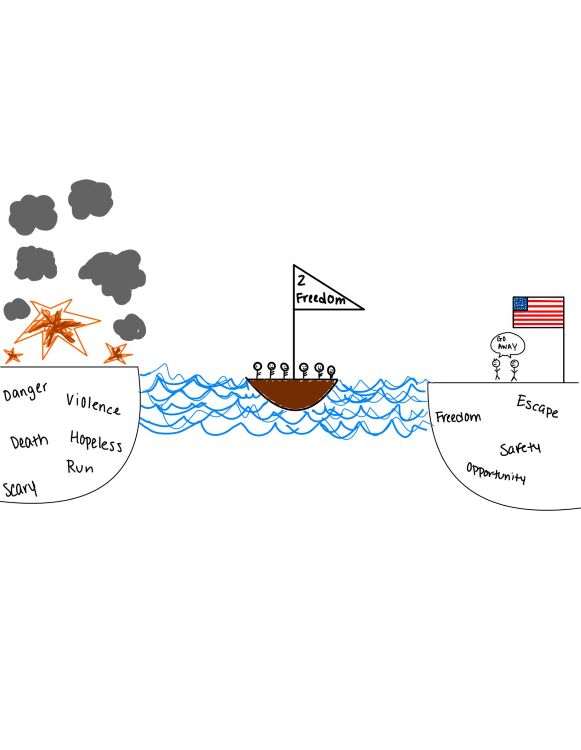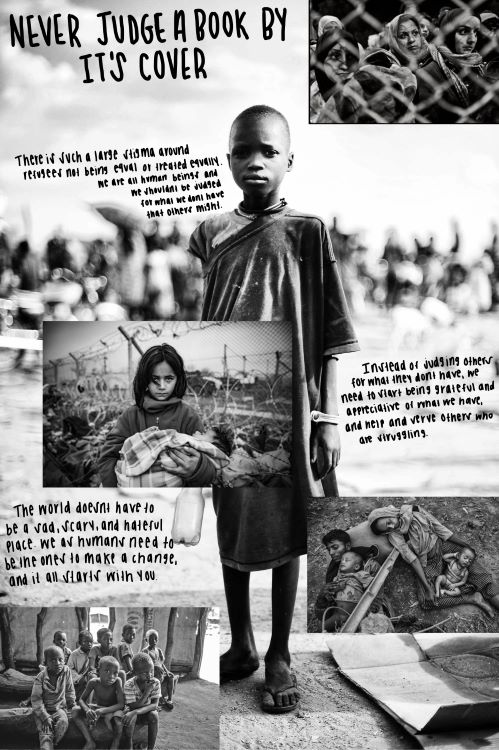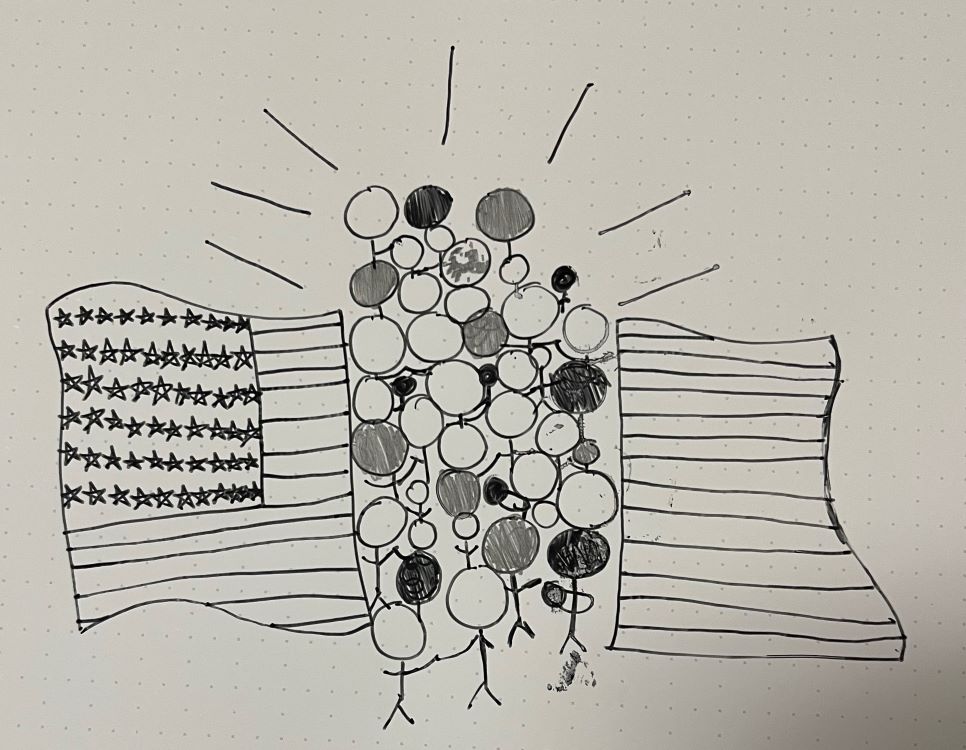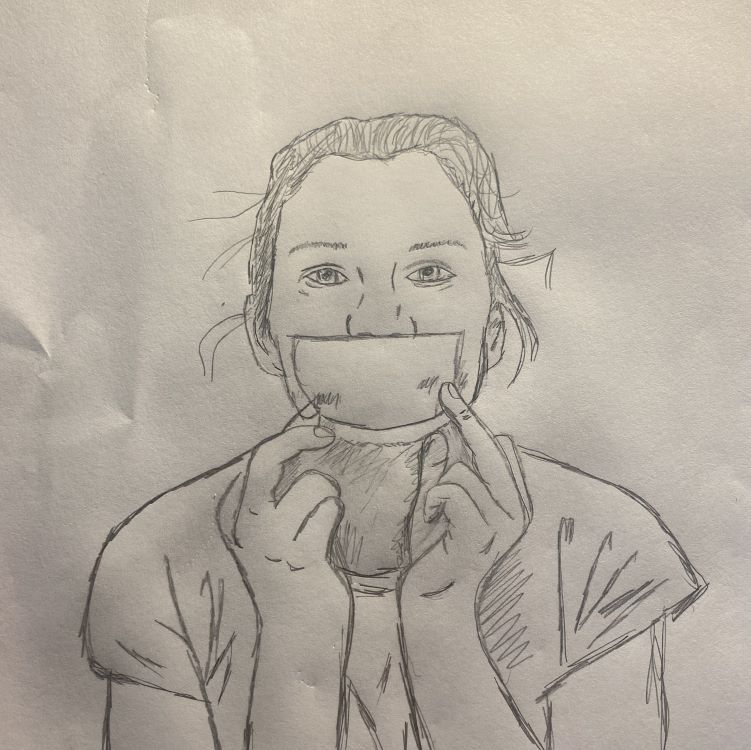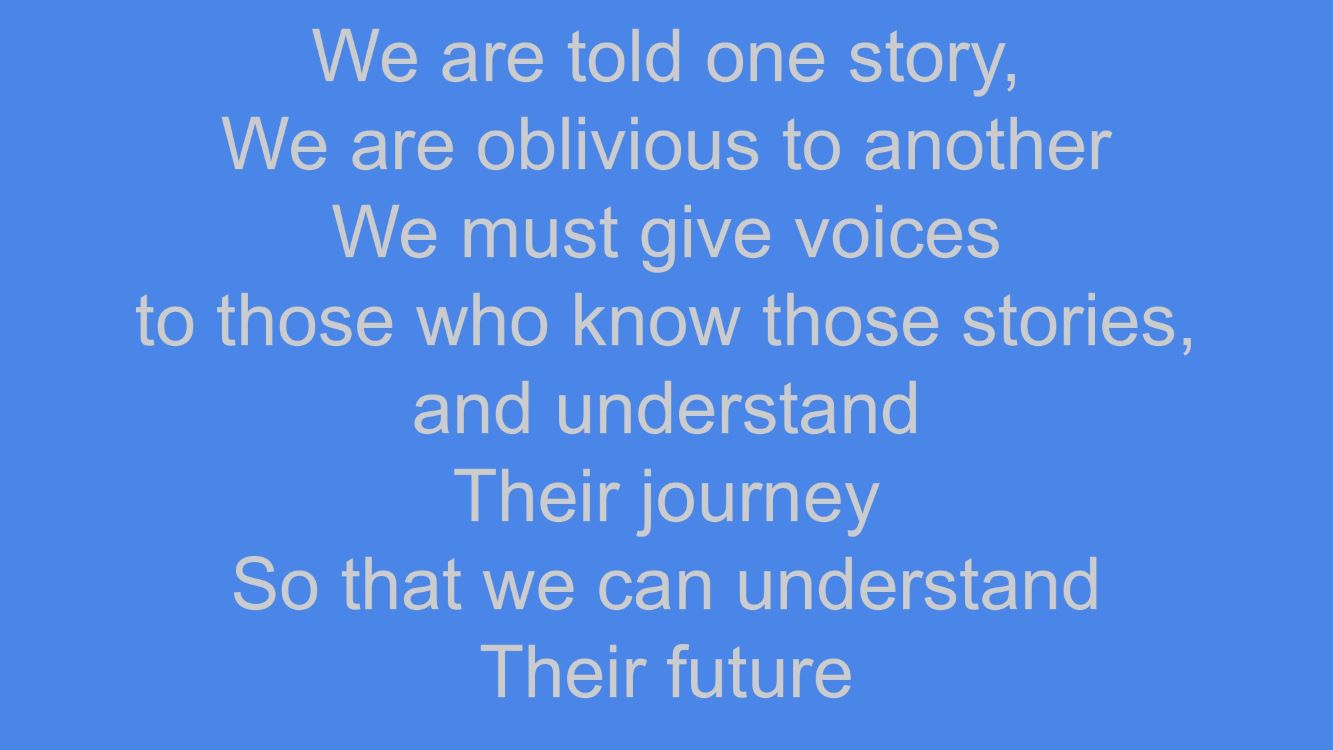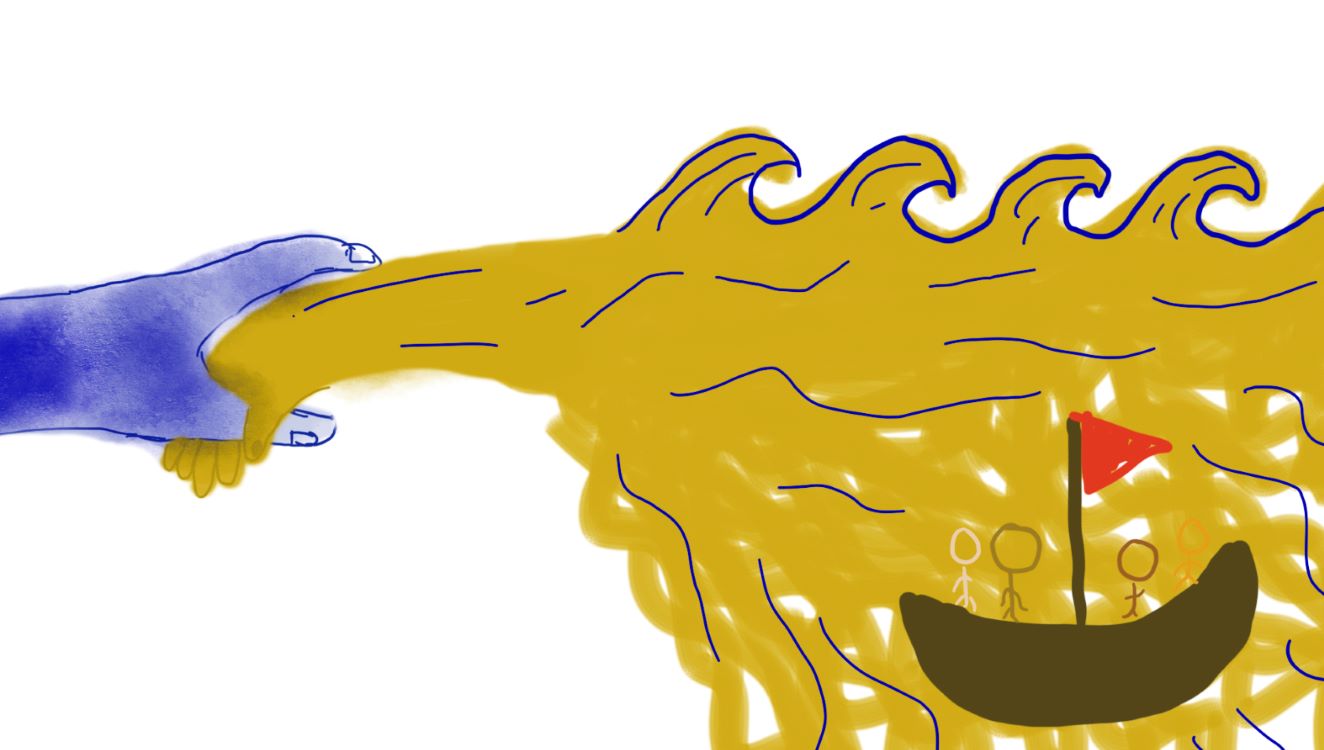The center of While the Earth Sleeps We Travel is the refugee. Who are they? What makes them refugees? What stories would they tell? Many students reflected on those questions and created digital artworks and poems about being refugees. To Ellena Adams, being a refugee means, "there are many identities that one has to forget and that one gains." Another student created a collage of triangular colored papers around the Japanese phrase emphasizing "sharpness." The student explains this creation as "a representation of how my identity fits into the refugee crisis in Armenia. I've always thought that I didn't fit in with my community, and this is [a] visual representation of my feeling of being unable to help."
To many readers, being a refugee means leaving everything behind and going into the unknown. To Sydney Butler, it is a little girl holding her only possession, a small doll, about to enter a refugee camp. To another student, it is a young refugee girl sleeping during her journey amongst her belongings and allusions to her path: wrapped in her country's flag, holding her heart close to her chest. To Trinity Antoszewski, it is a crudely drawn sailboat filled with refugee children at night: the anxious thoughts piling over each other, some louder and brighter than others and scattered everywhere. To Sophia, it is the deception behind the refugee identity, such that they "struggle [from] expressing [the] identity as a refugee."
Refugees constantly face misunderstanding, mistreatment, and discrimination during their journeys and at their destinations. Jovita expresses the frustration of being treated differently for the refugee identity in the poem "They Tell Us We Are Different:"
They look at us and all they can do is tell us in nonstopping ways that we are different and people
who do not belong in the country that is said to have freedom yet it is a freedom we can't have
without being mistreated, mistrusted, and mistaken to be a threat for the way we speak, dress,
and perform our religions
We are the different
A student resonates with similar frustrations expressed by Jovita's poem and the difficulties refugees face in the United States by creating artwork in which "refugees are escaping the violence from their homeland and can't wait to reach America for its safety and opportunities, but there are unwelcoming Americans telling them to go away." Dylan Lennon's research and the photographic collage of refugee children demonstrate that we should not judge any refugee by the visible differences and labels. Dylan encourages us to understand "the modern-day struggles [of refugees] that we Americans need to change."
"I saw the picture of refugees being closed off or barred off. It made me think of a prison, [where] they were trapped." Abigail explains her drawing as she believes this country should be an open place. The American flag is a sign of freedom, "so why not let those who weren't given that choice the chance to have it."
Rylee's drawing "Silence" shows how refugees are silenced and ignored by other people in the world. The drawing also points out how certain governments are trying to keep refugees away and refusing to give them voices and aid.
In the poem "The More They Walked," the student depicts the difficulties and up and downs in refugees' journeys. The poem reads:
The more they walked, the more their legs strengthened
The more they walked, the braver they became
The more they walked, the more fear became fearless
The more they walked, they got tired of walking…
Until eventually the flew.
Through another short poem, the student conveys the idea that "I was made aware of refugees' journeys in a way I hadn't before because it is not commonly taught and I hadn't been educated about it. However, I think that it is important to know the stories of refugees and understand their journeys to have a better mindset."
Sophia names her creation "Helping Hand," depicting the assistance we can all give to the immigrants and refugees who need to leave their homes for new ones. With the same hope, Lauren Kozubal communicates her eagerness to help refugees in need as she writes in her poem:
I'd have built a bridge between us
So you could walk across the sea
I'd have built a bridge between us
I pray one day we'll meet

